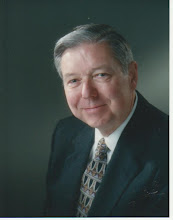Leisure - or a Coronary?
Life style and the creative use of leisure can be more important than diet or exercise in preventing heart attack. This startling conclusion emerged several years ago from a mass of research accumulated by Dr. Meyer Friedman and his team at the Harold Brunn Institute, Mount Zion Hospital and Medical Center in San Francisco.
According to Friedman, one of the most lethal of the suspected causes of coronary artery disease is a behavior pattern he calls Type A, which is characterized by "an overwhelming sense of time urgency and competitive drive." Nothing, he contends, can forestall the disease - not cholesterol-lowering drugs, not diet control, not exercise, nor even non-smoking - unless the Type A behavior pattern is altered.
A rehabilitated "Cannonball" (his youthful nickname), cardiologist Friedman suffered a heart attack long after having already diagnosed himself as a Type A. He is now a studiously relaxed man who is oblivious to the dust on his desk or the unraveled seams on his loafers.
Friedman and the members of his laboratory group first began to suspect that it was not just diet, smoking, or lack of exercise that accounted for the enormous increase in coronary disease in this country. Convinced that the accelerated pace at which we live had introduced a new kind of stress, they began to investigate the connection between behavior pattern and susceptibility to heart attack. Their findings - which, after much initial resistance from the medical profession - show that the excessively driven, excessively competitive Type A person is from two to three times more likely than others to get heart disease. According to Friedman, almost all men under 60 who have heart attacks are Type A's.
What is the Type A person like? Ambitious, competitive, impatient, and aggressive, he is involved in an incessant struggle against time and/or other people. His sense of time urgency is perhaps his most predominant trait. The Type A person generally strives frantically for things worth having at the expense of things worth being. Most Type A's tend to judge life by number values.
Contrary to popular belief, the Type A person is not more likely to be successful than the Type B (unhurried, relaxed, able to enjoy life and other people). No correlation has been found between job or position and any one behavior pattern. The president of a large corporation might just as readily be a Type B, as a machinist or truck driver might be a Type A.
Friedman is emphatic about the need for changing the destructive Type A behavior pattern. He offers these suggestions.
- Discontinue Polyphasic Thinking - Break the habit of thinking about several things at one time.
- Listen Without Interrupting - Concentrate on listening to another person's conversation without interrupting, no matter how long it goes on.
- Read Books that Demand Concentration - This is, especially at first, a great struggle for the preoccupied mind.
- Learn to Savor Food - As often as possible, dining should be a pleasurable, delightful experience.
- Have a Retreat at Home - Every person should have a place for privacy, a space of his own.
- Avoid People Who are Irritating - As much as possible, stay away from people who make you feel competitive or raise your hackles. If they are merely social acquaintances, eradicate them from your life like poison.
- Plan Some Idleness in Every Day - Take a new look at the world; walk in the park, go into a church and listen to the organ, walk through a museum.
- Restructure Trips and Vacations - Avoid jam-packed, hectic trips and too much traveling in one day. Vacations, too, should be relaxed, unhurried, and non-competitive.
Friedman's philosophy is this: (1) things worth being are better than things worth having; (2) live by the calendar rather than the stopwatch; and (3) consider any day that does not contain something of "memory value" a lost day.
No one has been a greater example of the "stop running and start living" school than Friedman himself. He learned to leave his lab for a leisurely two-hour lunch (always with a Type B friend), followed by a look at the city's steepest hills, a drive through Golden Gate Park or a stroll through the magnificent St. Mary's Cathedral. All was executed in the most unhurried fashion, in keeping with the Friedman dictum: for the sake of his heart - and his life - the coronary-prone Type A person must learn to rejoice in the world about him, rather than race against it. Consider this a new prescription for an old disease.


0 Comments:
Post a Comment
<< Home